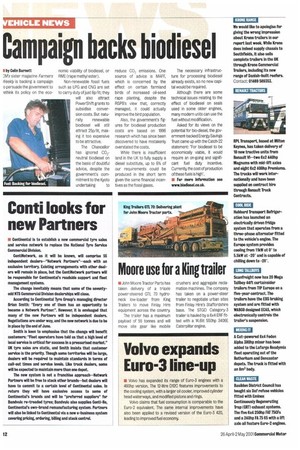Campaign backs biodiesel
Page 14

If you've noticed an error in this article please click here to report it so we can fix it.
by Colin Barnett 3M's sister magazine Farmers Neekly is backing a campaign o persuade the government to .ethink its policy on the eco
nomic viability of biodiesel, or RME (rape methyl ester).
Non-renewable fossil fuels such as LPG and CNG are set to carry duty ofjust 6p/lit: they will also attract PowerShift grants to
subsidise conversion costs. But natu
rally renewable biodiesel will still attract 25p/lit, making it too expensive to be attractive.
The Chancellor has ignored CO2neutral biodiesel on the basis of doubtful advice, despite the governments commitment to the Kyoto
undertaking to
reduce CO2 emissions. One source of advice is MAFF, which is concerned by the effect on certain farmland birds of increased oil-seed rape planting, despite the RSPB's view that, correctly managed, it could actually improve the bird population.
Also, the government's figures for biodiesel production costs are based on 1996 research which has since been discovered to have mistakenly overstated the costs.
While there is insufficient land in the UK to fully supply a diesel substitute, up to 6% of our requirements could be produced in the short term given the same financial incentives as the fossil gases. The necessary infrastructure for processing biodiesel already exists, so no new capital would be required.
Although there are some technical issues relating to the effect of biodiesel on seals used in some older engines, many modern units can use the fuel without modification.
Asked for its views on the potential for bio-diesel, the government-backed Energy Savings Trust came up with the Catch-22 statement: "For biodiesel to be economically viable, it would require an on-going and significant fuel duty incentive. Currently, the cost of production of these fuels is high".
II For more Information see www.biodlesel.co.uk.
































































































